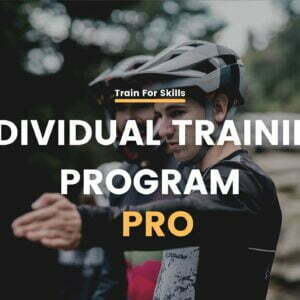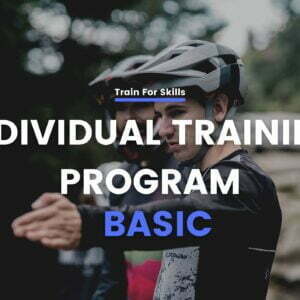What sports have taught me over the last 10 years
I have been gathering myself to write this post for quite some time. The more decisions I make in life and the more difficult situations I face, the more I realize how much influence sport has had and still has on me. By that I mean more than just playing a certain sport for fun. The moment you subordinate your life to a particular thing, when your dreams become the goal and you are not able to think about anything else, then sport becomes something more than just a hobby…
In my case, sport was a long-term educational process. In retrospect, I can see how my approach to life has changed. What I once considered a failure, I now see as a necessary stage in life, which has shaped my character. Of course, at the time it was unpleasant and incomprehensible to me. Now I can confidently say that every defeat, every victory, every injury, every day sacrificed was worth everything. You will do anything for passion. I would like to share with you the lessons that sport has taught me over the last 10 years.
Hard work always pays off
Always! This is the most important point for me. If the results of the rankings were predicted solely on the basis of a player’s experience, class of equipment, budget or popularity in the media, the reality would look completely different. Of course these elements have an impact on the achievements of the athlete. However, if we follow the careers of the best athletes, they are not people from rich families who had an easy start. Man is a complex bio-machine, and the ability to cope and overcome problems is not given to us genetically. We have to learn it. Therefore, talking about sport, I mean the process, which starts from trivial problems such as: reconciling studies with starts and training, stress before a race or returning to sport after a serious injury teaches us gradually how to cope with the encountered obstacles. Because of this, often less favorable conditions combined with hard work and passion can work wonders. The best part is that no one sees your work at first. You try with all your might and it only turns out to get worse and worse. Tears have been shed more than once. Nevertheless, you keep doing your job. Finally you see the results. Priceless.

Discipline
This is probably the only word that links all world-class athletes. I don’t know anyone who has reached the world level without this trait. Looking also from an athlete’s point of view, I think discipline is a skill. We have to learn it like any other activity. In his book “The Power of Habit,” journalist Charles Duhigg writes that for something to become a new and established habit, we must repeat it systematically for about 21 days. This is the time when our choices become an automatic standard in our lives. This means that if you want to be among the top athletes, you will sometimes have to choose between partying and going to bed, or playing Xbox and doing a workout. So discipline means the art of making good choices and making them a new habit. The examples given are just the tip of the mountain of what athletes have to face.

Professionalism
Here it is very important to distinguish; whether someone looks like a professional or behaves like a professional. A person with this attitude should certainly have the trait we mentioned above – discipline. Real life example – I take part in competitions and I own a bike from this lower shelf. I don’t care what equipment my rivals have and who has more advantage. On the day of the start I prepare myself as if I had the best facilities of all. I wear a washed and smelling jersey (some people may not know what that means), clean my shoes, brush my teeth for the third time, and my bike is beautifully washed and waiting since yesterday. At the race, I give it my all according to the all-in rule. After the race, regardless of the result, I high-five all my rivals. I go home and do everything to be better next time. This is my concept of professionalism.

Sport does not equal health
Sports, or at least those played at a level above recreational, are not healthy. Sure, professional athletes achieve incredible levels of fitness, but they often pay for it with hundreds of sacrifices or damage to their health. Overloads, overtraining, eventually physical injuries. In addition, not all injuries depend on us. The next stage is rehabilitation and return to sport. This is one of those obstacles we face and depending on how we deal with it, it affects our later choices in life. Injuries aren’t bad until the life-threatening one or your athletic future happens to you. A year and a half ago while training for a competition, I severely injured my left kidney with internal bleeding. In the hospital after my MRI, a doctor approached me and told me that I would likely undergo surgery that night to remove my kidney due to too much trauma and bleeding. That’s when the thought first entered my mind that maybe it wasn’t worth risking it that much further. When you can’t do the simplest things on your own, even physiological ones, you realize how much health is worth. Eventually, thank God, there was no surgery.
It took me six months before I returned to normal fitness. Shortly after that, at the Polish Championships I had another accident, which eliminated me for the next few months and left me with a small health impairment. Injuries have a way of giving you too much time to think. What do I mean by that? At times like this, there is always a hint of doubt as to whether it was worth it. But, then the body comes back to relative health, you gradually start to forget about it, you think about how happy you were doing what you were doing, and you start doing it again…

“There may be people that have more talent than you, but there’s no excuse for anyone to work harder than you do.” – Derek Jeter
Summary
Sports is a process that holds many important lessons. If you want something really badly, you will probably achieve it. Discipline and professionalism are the domain of the best athletes. Failures are tools that shape your character, and goals achieved are priceless. However, there is nothing for free, so you must reckon with sacrifices and sometimes injuries. I wish each of you fulfillment in pursuing your passion and as much health as possible!




